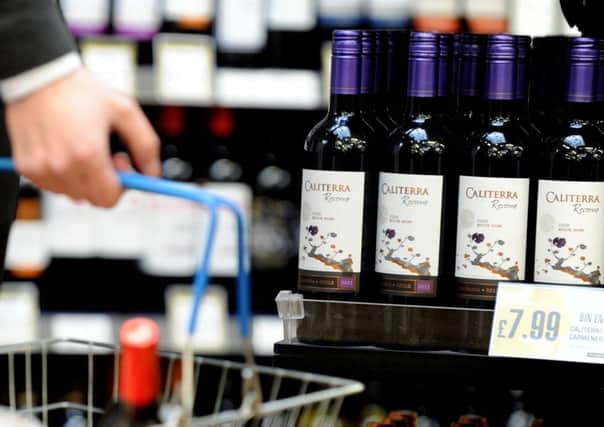Kevan Christie: Minimum pricing is all about public health v big business


On one side we have the Scottish Government and a plethora of medical professions telling us that a decision in their favour which would mean no alcohol could be sold in Scotland at less than 50p per unit would save lives.
Against this is the Scottish Whisky Association (SWA) acting on behalf of global alcohol producers, who have stalled MUP for five years and counting – since the Scottish Parliament passed it into law in 2012.
Advertisement
Hide AdAdvertisement
Hide AdTheir representative Aidan O’Neill QC argued that to deal with the problem of one per cent of harmful drinkers in poverty the Scottish Government has produced a measure that will impact on all drinkers.
Inevitably, the discussion has become political with accusations of ‘nannyism’ being flung in the direction of the SNP and ludicrous claims of drinkers’ human rights being violated.
However, despite all this bluster - and I would claim the SWA are ahead so far given that they’ve managed to tie all of this up through the courts for five years – it really comes down to public health versus big business.
The problem of cheap alcohol is doing terrible damage to the most vulnerable drinkers and their families. Cheap cider and vodka have taken a heavy toll with Scottish Health Action on Alcohol Problems (SHAAP) noting that in the five years since the implementation of the Scottish MUP law was stalled, approximately 5,700 heavy drinkers have died as a result of alcohol-related causes.
We know who they are, mostly men in their early fifties with the tail-enders of Generation X, those born between 1960 and 1980, ensuring a steady supply of problem drinkers will be knocking on death’s door for years to come.
Analysis out earlier this week showed the risk of drug-related deaths increased in Scotland in the 1990s for this demographic, especially within deprived areas. NHS Scotland and the University of Glasgow found the hypothesis that economic and policy decisions during the 1980s created a backdrop of income inequality and resulted in a delayed negative health impact. This analysis was on drugs, but I would wager similar work on alcohol would arrive at the same results.
Look past Generation X, and the younger people’s drinking habits tell a different story - they like hipster gins and craft beers - that it’s not all about how much you imbibe. In this climate cheap cider and vodka will disappear like bad 1970s sausages, if MUP is introduced.
So, the debate about minimum pricing isn’t really about the working couple who like a glass of wine between them, or the project manager who buys four cans from the supermarket and thinks the cheap French beer is ‘surprisingly good’, or the pensioner whose weekly bottle of whisky will go up.
Advertisement
Hide AdAdvertisement
Hide AdNo, it’s about the most helpless in Scottish society, the people who have been neglected for years – the ones who really can’t help themselves.
The people who support MUP know what they’re talking about - many have been on the frontline in the battle to rid the nation of our booze curse.
Don’t worry, the Scotch whisky industry contributing almost £5bn a year to the UK economy will survive a ruling that goes against them.
The guy who buys two bottles of cheap cider a day then drinks it in the park might not.